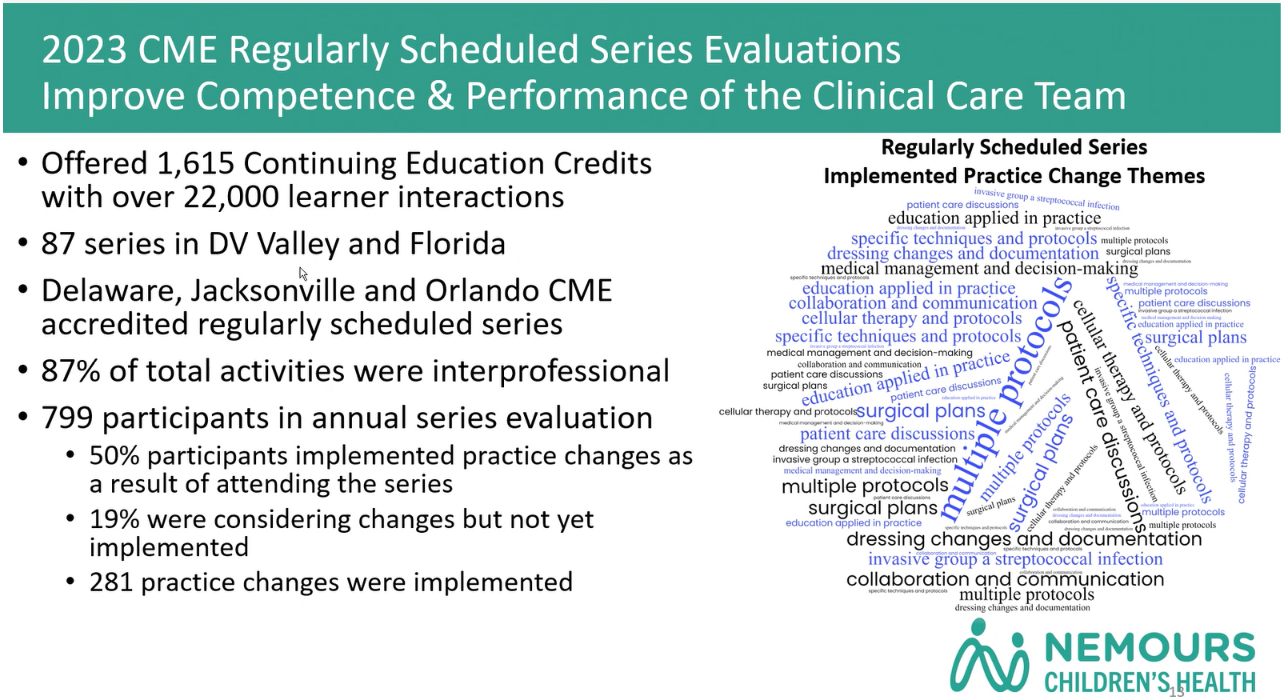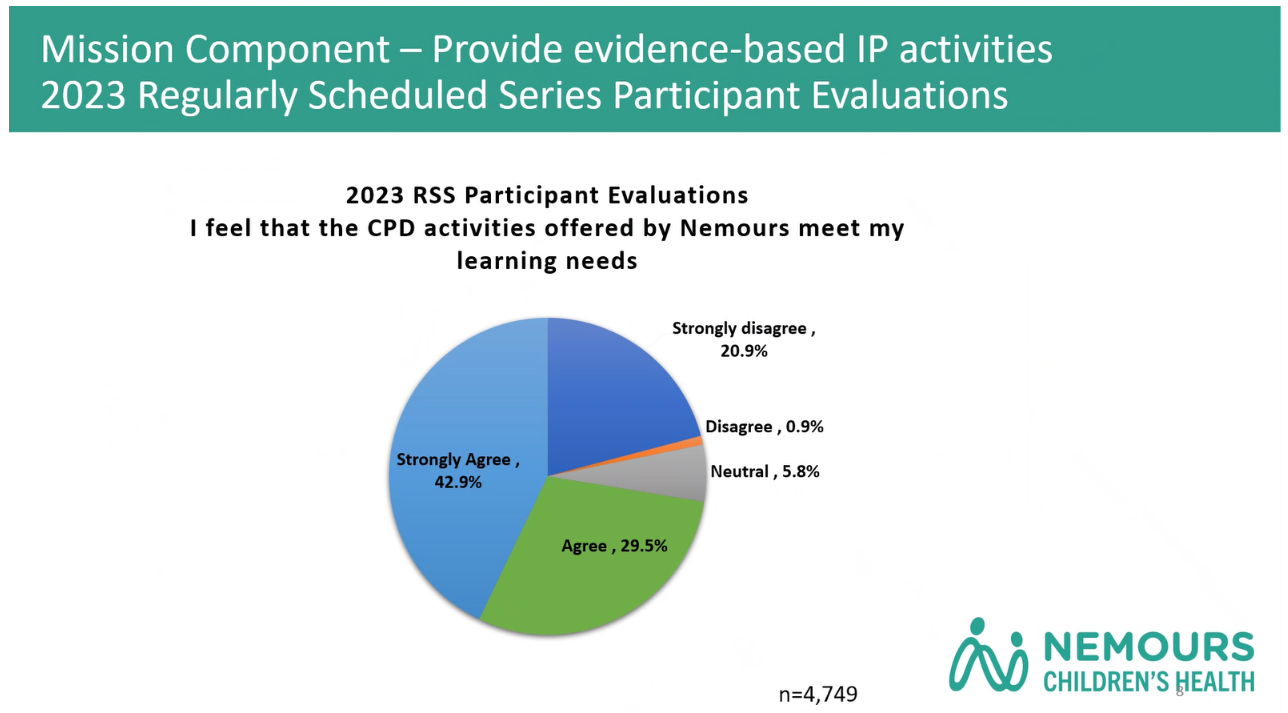
Introduction
Are you ready to go down the rabbit hole about the accredited activity called Regularly Scheduled Series (RSS)? The RSS is the activity that may not have the glamour of a big conference with its beautifully descriptive brochures or revenue, but it is the backbone of many continuing education institutions. Hang with me for the next few minutes as we delve into the underbelly world of managing RSS.
Background of Regularly Scheduled Series
What is a RSS? The Accreditation Council for Continuing Medical Education (ACCME) defines it as “a live activity planned as a series with multiple, ongoing sessions, e.g., offered weekly, monthly, or quarterly” and “primarily planned by and presented to the accredited organization's professional staff and generally targets the same audience over the whole series.”
For example, Nemours Children’s Health’s hospitals in Wilmington, Delaware and Orlando, Florida currently have 92 active RSS with two full time associates who oversee the series. Each RSS has a program chair/co-chairs and administrative coordinator (coordinator). The chairs are busy clinicians (physicians and other healthcare associates) using discretionary effort to support the RSS. The coordinators also have busy schedules in their departments in addition to supporting their RSS.
How Do You Explain RSS to Your Colleagues?
One of RSS unique traits compared to other activity types is the volume of offerings that are available everyday throughout the entire year. For instance:
- RSS starts the first week of January and are active through the end of December.
- There is no one and done, let’s schedule this activity again next year, with an RSS. It is continuous. Every. Single. Day.
- The sheer volume of RSS, along with the yearly documentation and forms for thousands of sessions can be very overwhelming.
How Do You Cope and Not Burn Out?
It is integral to maintain open communication with our coordinators as they are the key to ensuring when sessions are active, cancelled, and documentation and forms are completed. Some coordinators have one RSS and others have as many as five or more RSS. Without our coordinator’s participation and dedication, we would not be able to continue to grow our RSS offerings.
Daily Management
Our learning management system (LMS) has a calendar that shows all our accredited activities throughout the institution. This calendar is a game changer for managing RSS.
- Every Monday morning, we look at the LMS calendar for the week to see what RSS are scheduled.
- We view the RSS sessions to see if the documentation and forms are completed. If we have any questions or do not see everything completed, we contact the coordinators.
- The accreditation documentation is different depending on the types of RSS (didactic, case-based, or journal clubs).
- Didactic RSS require extensive documentation, such as speaker forms, financial disclosures, and the presentation
- Case-based RSS require a template that states the cases discussed in the session.
- Journal club RSS require all the articles discussed in the session to be uploaded.
- Continuously keeping track of new planning committee members (i.e. those that control content). This requires making sure all new members complete a financial disclosure and if needed, mitigate any relevant financial relationships.
- Additionally, coordinators change throughout the year, which requires training them on the LMS and RSS documentation that is required.
Yearly Management
Are you still with me? Good! Now let us talk about the yearly preparation that happens during the fourth quarter as we prepare for January.
- Coordinators will send us a list of their RSS planning committee members for the following year.
- Conduct yearly participation evaluations for each RSS.
- Review all planning committee members’ financial disclosures and if needed, mitigate any relevant financial relationships.
- Receive all the RSS session dates for the following year so we can create the sessions in our LMS before Dec. 31.
- Require all RSS chairs complete a yearly RSS survey.
- Our Director of Education Programs manages our yearly RSS PARS.
Conclusion
Despite the voluminousness of managing RSS, the outcomes are quite astounding. Here are some 2023 statistics from our organization:


Overall, the numbers show the big picture. RSS are a very valuable resource for continuing education and learners. The program may not have the excitement and flash of a conference, but it offers an abundance of learners the opportunity to gain knowledgeable skills, current research, and have an impact on patient care.
Give your RSS administration, series chairs, and coordinators kudos for keeping this mega program running daily, year after year. They are proof that a small but mighty team can effect big change.